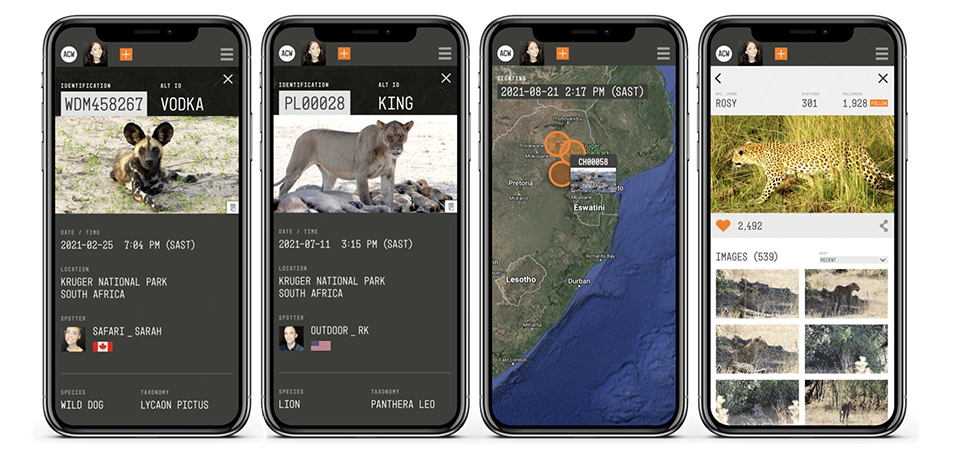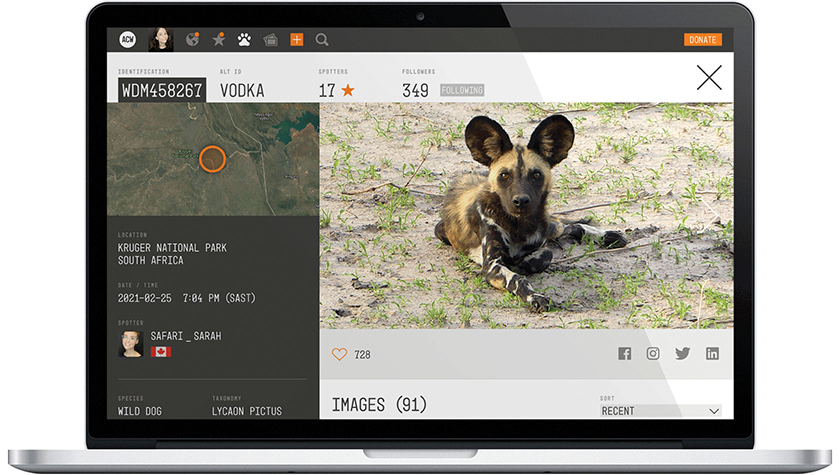Citizen Science is Love.
As brand communication designers, we're fortunate to work with people involved in a wide variety of commendable pursuits, from early childhood education, to life-changing medicines, to environmental protection, and technology is part of virtually every conversation.
While concepts like artificial intelligence and machine learning seem to be embedded in everything from the development of autonomous vehicles to e-commerce recommendation engines, we're thrilled to be working with some people who are employing them in decidedly positive ways: they're helping empower conservationists through citizen science and advanced technologies.
Founded by people with deep roots in technology who share a love for the natural world, Tech for Conservation (T4C) is a Vancouver-based organization created to help conservationists leverage advanced capabilities in their efforts to protect at-risk animals and environments. African Carnivore Wildbook (ACW) is one of the first offerings they’ve brought to life.
For wildlife conservationists, knowing which individual animal was seen where, when, and with which other specific animals over time is immensely valuable. With more data comes better research and analysis, and ultimately, better, more targeted conservation actions, but using conventional techniques within severe resource constraints means acquiring the underlying information—actually locating and recording the presence of an animal in a specific location within a vast geographic area—is incredibly difficult. Conventional techniques such as camera traps and scouting are obviously subject to resource limitations, and there are only so many eyeballs available within the conservation groups themselves. That’s where citizen science comes in.
ACW’s platform is driven to a large extent by images sourced from tourists and guides—citizen scientists—and its advanced technologies (rooted in AI, machine learning and pattern recognition) automate and therefore speed the delivery of the important information it is able to derive. Once an individual animal has been identified, it can be matched in images provided by others, and the metadata captured can provide a massive resource that can be used to better monitor animal populations, movements, behaviors, lifespans, mating and reproduction trends, etc.
It’s a powerful concept that’s already delivering incredible results.
ACW has seen more than 1,000 citizen scientists submit images for potential matching. That has already led to the identification of 1,894 unique animals, and the system has begun providing never before available data to 19 conservation and research groups in 11 countries.

We helped T4C introduce ACW to the world by creating the digital presence through which citizen scientists everywhere can discover the platform and upload images, and are continuing to build out and refine the back-end processing and management system that interfaces with the AI/ML platform and through which administrators and accredited researchers can access the data the system is providing.
As designers, it’s incredibly fulfilling to be part of an effort like this. As one tourist-turned-ACW-contributor we spoke with expressed so eloquently, “citizen science is love.”
PS Want to feel the love? If you have original digital images of African lions, leopards, cheetahs, wild dogs, or hyaenas taken in the wild, please upload them. If you don't have images to share, please consider making a small donation (T4C is a not-for-profit) to support this incredibly important work. You might just help researchers connect some hidden dots that will make a world of difference.
